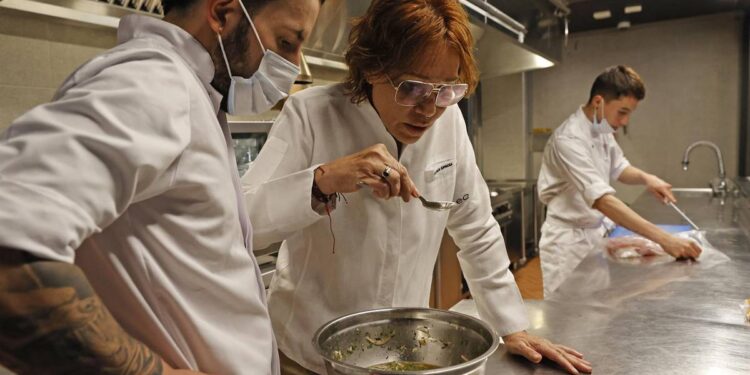Unveiling the Essence of Gastronomic Decolonization: Unearthing Culinary Roots
In a world where cultural diversity has become the cornerstone of our societal tapestry, the culinary realm has not been immune to the profound effects of colonization. However, as the tides of change surge through our collective consciousness, conversations surrounding the decolonization of gastronomy have started resonating more powerfully than ever.
Delving into the intriguing subject of decolonization in the realm of gastronomy, we find ourselves journeying through a captivating tale of heritage, resilience, and culinary reclamation. Through the lens of this thought-provoking topic, we uncover the hidden narratives and untold stories that lie within each dish sizzling on our plates.
Gone are the days when colonial influences dominated our palates, relegating the true flavors and traditions of indigenous communities to the peripheries. Today, a burgeoning movement seeks to rewrite this narrative, aiming to bring forth an authentic understanding of our cultural heritage and celebrate the diversity that makes up our culinary mosaic.
At the heart of this movement lies a fundamental question: What do we truly mean when we discuss the decolonization of our gastronomy? In unraveling this enigma, we embark on a fascinating exploration of the historical roots that have shaped the culinary landscape we know today.
As we navigate this delectable voyage, it becomes evident that decolonization is not merely a revolt against dominant culinary norms but an invitation to rediscover, honor, and uplift the voices of marginalized communities. It is an ode to the forgotten techniques, seasonings, and ingredients that were unceremoniously cast aside in the name of assimilation.
Breaking free from the shackles of culinary conformity, this movement encourages us to embrace a vibrant tapestry of traditional knowledge, rich flavors, and sustainable practices. Our taste buds serve as the vessels through which we can embark on a deep-rooted journey, fostering a renewed appreciation for the vast cultural mosaic that pervades our culinary heritage.
Peering into the future, there is a palpable sense of excitement and abundance as we witness the gradual transformation of our gastronomic landscape. This transformative process offers a promising renaissance, where chefs, farmers, and food enthusiasts come together to explore innovative ways of growing, sourcing, and preparing our meals.
By embracing local ingredients, honoring ancestral recipes, and forging meaningful connections with the land, we cultivate a gastronomic ecosystem that celebrates diversity, sustainability, and cultural preservation. It is a reawakening of our taste buds and a homage to all those unsung heroes who have tirelessly dedicated their lives to preserving the authenticity of their culinary traditions.
As we navigate the realms of decolonization in gastronomy, we must remember that this journey is not just a fleeting trend but a continuous process of growth and reflection. It challenges us to confront our own biases, dismantle preconceived notions, and embrace the multifaceted nature of culinary heritage.
Ultimately, the exploration of decolonization in gastronomy is an invitation to celebrate the tapestry of flavors and stories that encompass our culinary world. It is an opportunity to honor the voices of the silenced, revive lost traditions, and savor the richness of our global culinary heritage.
So, let us embark on this mouthwatering odyssey, where the flavors speak of resilience, the aromas evoke a sense of belonging, and the tastes foster a world where every dish whispers the stories of liberation and cultural empowerment.
” Sources www.publimetro.co ”

